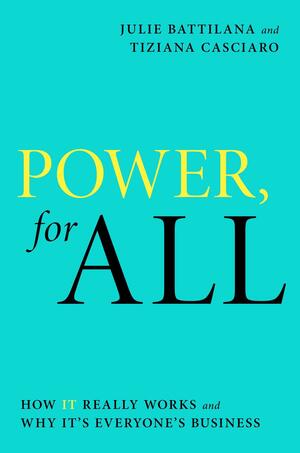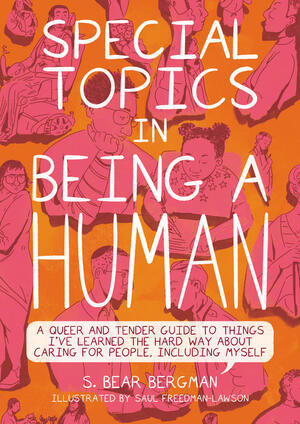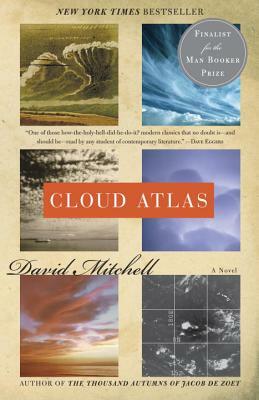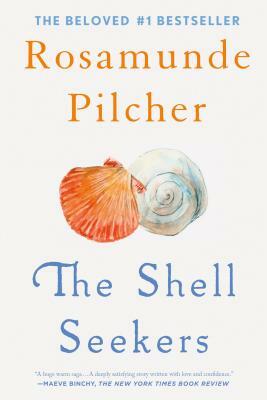Books I Read in December 2021
In December I read four books: two novels, one non-fiction and one illustrated advice book. I loved three of them.
These reviews were originally posted on StoryGraph.
Power, For All: A User’s Guide by Tiziana Casciaro and Julie Battilana

This book is an overview of power — what it is, how it’s gained, how it’s retained and protected, and how to access power and shift existing power hierarchies. It’s quite exhaustive, and since the authors are power researchers I feel like it’s pretty credible.
I took pages of notes on this book, and I recommend it. It’s particularly timely now — the world is volatile moving out of a pandemic. More and more, people are realizing that the existing power structures only serve a small minority. The time is ripe to shift the structures that run things, and a book like this is a valuable addition to the revolutionary’s library.
I could spend a long time typing out interesting things I learned from this book, but I have other books to review. Here are just a couple:
-
Once a power hierarchy is in place, lots of mechanisms work to keep it in place. A person who has power tends to become less empathetic, more entitled, more self-absorbed and more arrogant. Having power tends to make you think you deserve power (and that those without it deserve their situation, too).
-
Conversely, even people without power tend to believe their situation is just and fair. This is because it’s more comforting to believe the world makes sense and is orderly and predictable, even if you happen to have gotten a bad lot, than to believe that the world is unfair and cruel. (It reminds me of how abused and neglected children believe there is something wrong with them rather than believe their parents are doing wrong.)
-
It takes three kinds of people to shift power hierarchies: agitators, innovators, and orchestrators. Agitators point out and articulate the grievances, innovators propose a new way of doing things, and orchestrators make the plans and the connections. You need all three for change to happen.
-
Collective action is how people who don’t have other kinds of power (money, influence) can make change happen.
There’s so much more in this book. It’s academic, so it’s dense with information, but I didn’t find it dry; there are good stories and case studies throughout.
Special Topics in Being a Human: A Queer and Tender Guide to Things I’ve Learned the Hard Way about Caring for People, Including Myself by S. Bear Bergman

I love everything Bear Bergman does, so it’s not a big surprise that I love this book. Bergman has been writing an advice column for years, and this book is a collection of advice that he’s given again and again.
Chapters include how to apologize, how to disagree, how to breakup in a graceful manner, how to tell someone something they probably don’t want to hear (at least at first), how to get someone’s new name and pronouns right, and how to keep going when all you want to do is stop. I’ve already referred back to a few chapters.
Bergman’s advice is always so gentle, so encompassing and embracing of human nature and the things that are hard for all of us. I always feel loved when I read his writing.
The other nice thing about this book is that it’s in a kind of semi-comic format, with illustrations by Saul Freedman-Lawson (who my daughter knows in some way, because Toronto). The illustrations add even more warmth and space and life to the pages, making the advice seem somehow more doable.
Cloud Atlas by David Mitchell

This book is super-good value for money because it’s, like, five books in one. The conceit is that partway through each story, the author interrupts with the start of another story — sometimes in mid-sentence. Eventually the through-line that connects all the stories becomes clear, and each interruption is explained and resolved.
I know: It sounds pretentious and annoying. Somehow it manages not to be, though, because Mitchell is such a good writer and his characters are so charming and the plots rollick along so enjoyably. It was a little frustrating when a story got interrupted, but the next story always picked up fast enough that I didn’t stay mad. The only problem was remembering where we were when the stories returned, but that was nothing that a little leafing back couldn’t fix.
This book was recommended by a dear friend, so I wanted to read it thoroughly; I got really nerdy and made lots of notes to figure out the themes and connections. I won’t bother typing out what I figured out because all y’all are smart enough to come to your own conclusions, but I will say that the book is well-crafted enough to withstand my dissection — it’s well-thought out and coherent and altogether delightful to think about.
The Shell Seekers by Rosamund Pilcher

This is a fine book. The writing is good, the plot is fine, it’s a beach read, I guess. And I hated it.
I’m glad I read it, though.
It’s a family epic about three (four? it’s been a while since I read it) generations of an English family from World War II to the 80s. The thing that made it so bad to read, for me, was how awful the characters were.
First, the actual characterization, the writing, was bad. The main character was filled out fairly well, but most of the other characters were sketches, rough outlines with no depth or subtlety: the dumb, shallow, (fat) social climber; the money-hungry layabout; the polished executive city woman; the free-spirited youth.
But second, the characters as written were awful, shitty people in a way that personifies the prevailing culture of England in the previous century: judgmental, petty, classist.
A major plot point hinges around how shameful it is that — I shit you not — one of the characters rents instead of owning. Another plot point (that could have been edited out of the book altogether) was about whether a character had epilepsy, with the understanding that if he did it would be an insurmountable tragedy and he certainly wouldn’t be fit to marry.
The main character is supposed to be this bohemian free spirit, but the author can’t seem to wrap her head around what that would mean in real life. Towards the end of the book, the character comes into possession of a mink coat, and she gets rid of it with the thought, “what would the neighbours think of me wearing this to pick up the post”. That would not even cross the mind of a true free spirit, especially one in her sixties.
Oh, that reminds me of another thing — the main character is in her mid-sixties at the start of the book, and that’s presented as positively antediluvian. I know healthcare has improved since this book was written, but I don’t think mid-sixties was ancient even then. (I wonder how old the author was when she wrote the book.)
This book is positively rancid with fatphobia. Almost every awful character is fat and every fat character is awful (except for the homely Mediterranean peasants, who I guess are allowed to be fat and charming because they’re not English). One character moves up north (if you’re English you know what that implies, class-wise) and gets fat. Another character moves from inner city London, during wartime, to Cornwall (or somewhere bucolic, I’ve forgotten exactly where) and somehow loses weight even though she’s gone from rationed food to eating farm butter and eggs — such is the author’s inability to believe that you might get fatter and happier.
And there’s a bit of homophobia, too.
I’m glad I read the book because these are my people. This is my culture. This is how I was raised, the worldview that was burned into my young psyche. This book explains so much about why I feel ashamed of myself so often, for things I don’t really think are shameful.
It was eye-opening to have it laid out in front of me like this, so uncritically. The differences between the values in the book and the values I hold now became starkly evident, and reading the book allowed me to recognize where the values of the characters in the book linger in the recesses of my mind.